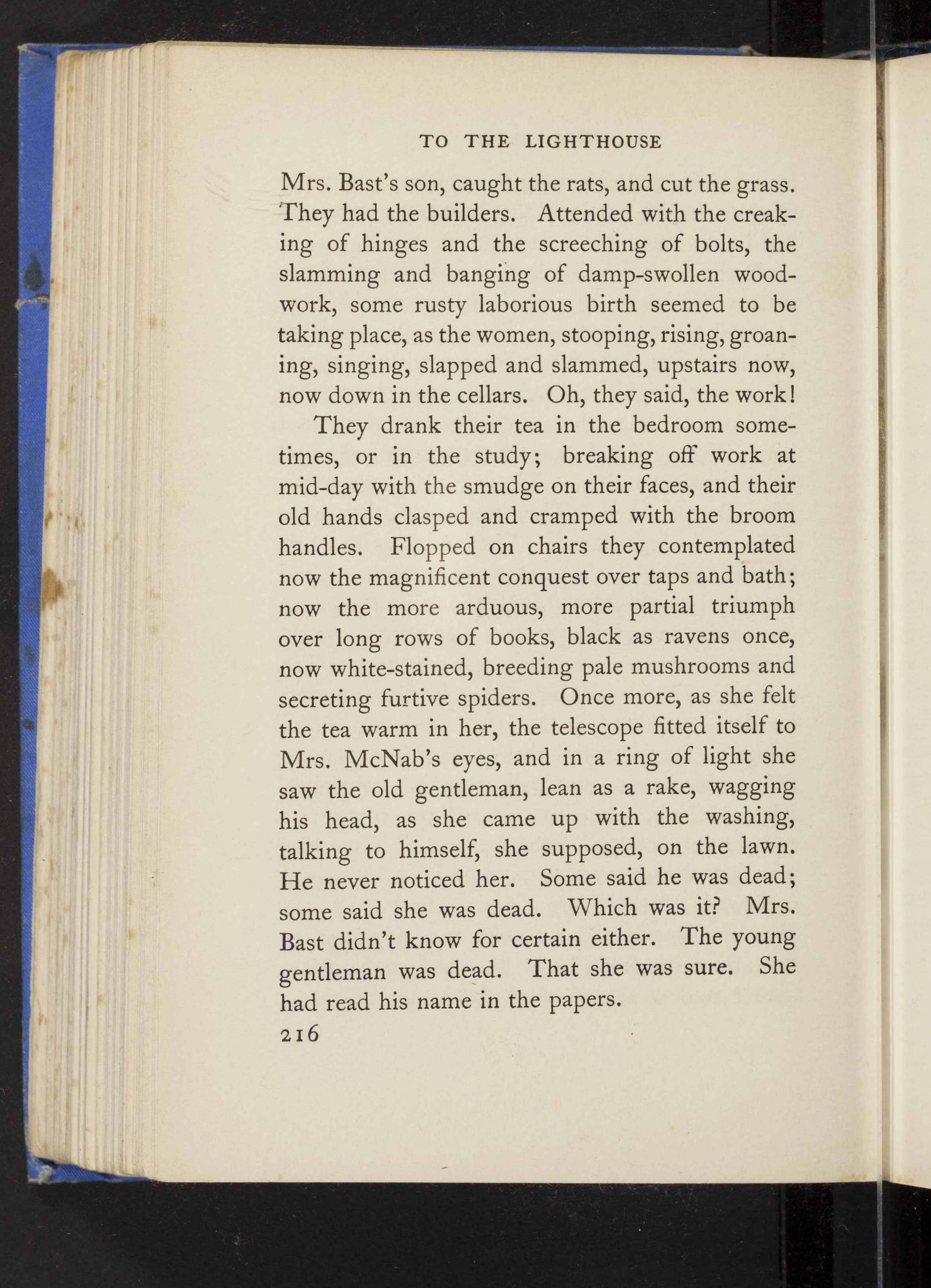
TO THE LIGHTHOUSEMrs. Bast’s son, caught the rats, and cut the grass.They had the builders. Attended with the creak-ing of hinges and the screeching of bolts, theslamming and banging of damp-swollen wood-work, some rusty laborious birth seemed to betaking place, as the women, stooping, rising, groan-ing, singing, slapped and slammed, upstairs now,now down in the cellars. Oh, they said, the work!They drank their tea in the bedroom some-times, or in the study; breaking off work atmid-day with the smudge on their faces, and theirold hands clasped and cramped with the broomhandles. Flopped on chairs they contemplatednow the magnificent conquest over taps and bath;now the more arduous, more partial triumphover long rows of books, black as ravens once,now white-stained, breeding pale mushrooms andsecreting furtive spiders. Once more, as she feltthe tea warm in her, the telescope fitted itself toMrs. McNab’s eyes, and in a ring of light shesaw the old gentleman, lean as a rake, wagginghis head, as she came up with the washing,talking to himself, she supposed, on the lawn.He never noticed her. Some said he was dead;some said she was dead. Which was it? Mrs.Bast didn’t know for certain either. The younggentleman was dead. That she was sure. Shehad read his name in the papers.216









